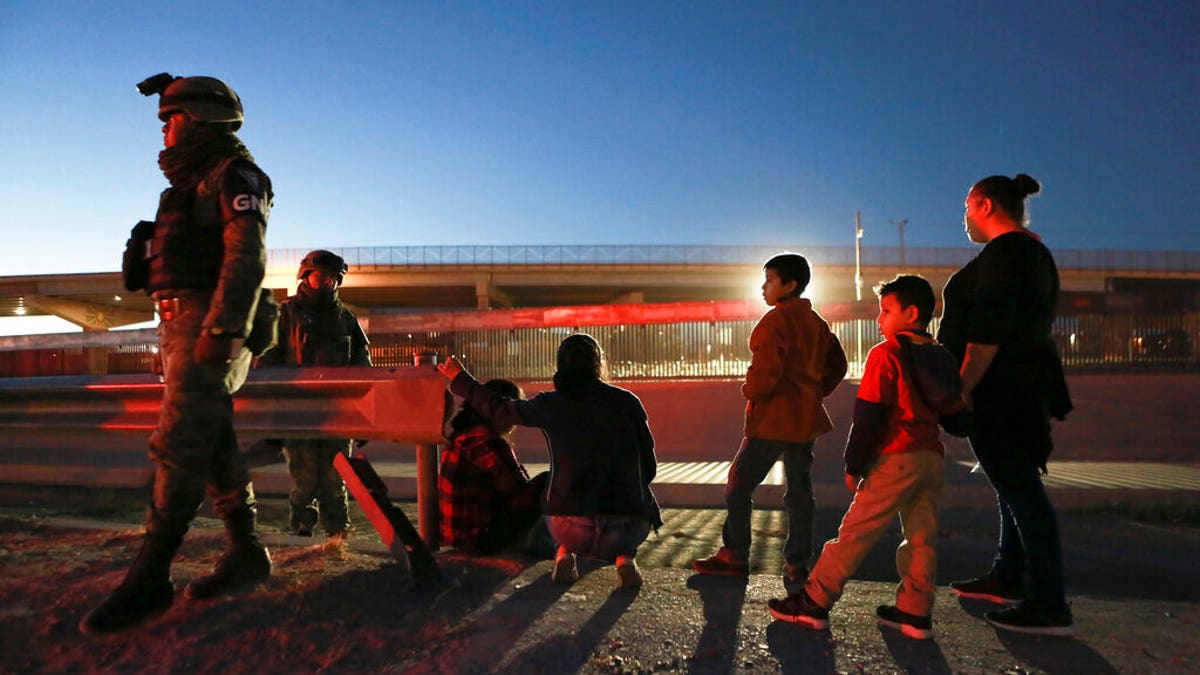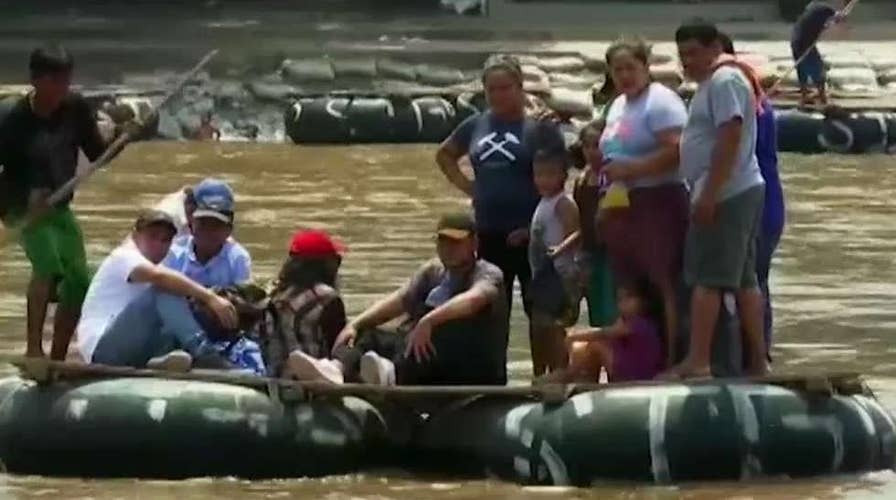Mexico adopts get-tough tactics to thwart migrants
Mexico steps up enforcement along Guatemala border; William La Jeunesse has the details.
Dozens of Central Americans who had been returned to the border city of Juarez to await the outcome of their U.S. asylum claims were being bused back to their countries Tuesday by Mexican authorities, a first for the program commonly known as "remain in Mexico."
An official with Mexico's Foreign Relations Department said the bus left Ciudad Juarez at 9:00 a.m. and all 70 aboard were "volunteers" for repatriation to their native El Salvador, Guatemala or Honduras. It's at least a day and a half journey overland from the city to Mexico's southern border.
The official added that similar busings were "coming soon" in Tijuana and Mexicali, two other cities that have been taking in returnees from the United States under the program.
OFFICIALS PUSH BACK ON AOC'S BORDER STATION CLAIMS, SAY SHE IS 'MISINFORMING' THE PUBLIC
The person, who spoke on condition of anonymity because the information had not yet been made public, said they were not sure what impact that might have on the asylum-seekers' cases in the United States.
At least 14,000 people have been returned to Mexico by the United States under the program, for waits that stand to take many months or even longer as claims slog through backlogged U.S. immigration courts.
BETO O'ROURKE TRAVELS ACROSS MEXICO BORDER, MEETS WITH ASYLUM SEEKERS

Military police wearing the insignia of the new National Guard detain migrants from Guatemala to keep them from crossing the Rio Grande from Ciudad Juarez, Mexico to El Paso, Texas, late Monday, June 24. (AP)
Under a recent agreement with Washington to head off threatened U.S. tariffs on Mexican goods, Mexico agreed to an expansion of the program to other border points beyond those three cities, where it was already in place.
That has raised fears among migrants' advocates that Mexican border cities are ill-prepared to cope with the influx, with resources scarce and many shelters already overflowing.
Cities like Juarez and Tijuana can be dangerous places with high homicide rates. Farther east, in the Gulf coast state of Tamaulipas, cartels have historically been known to target migrants for kidnapping, extortion and murder.
CLICK HERE FOR THE FOX NEWS APP
Nuevo Laredo, in Tamaulipas across from Laredo, Texas, is one of three new cities to begin receiving returnees from the United States.









































